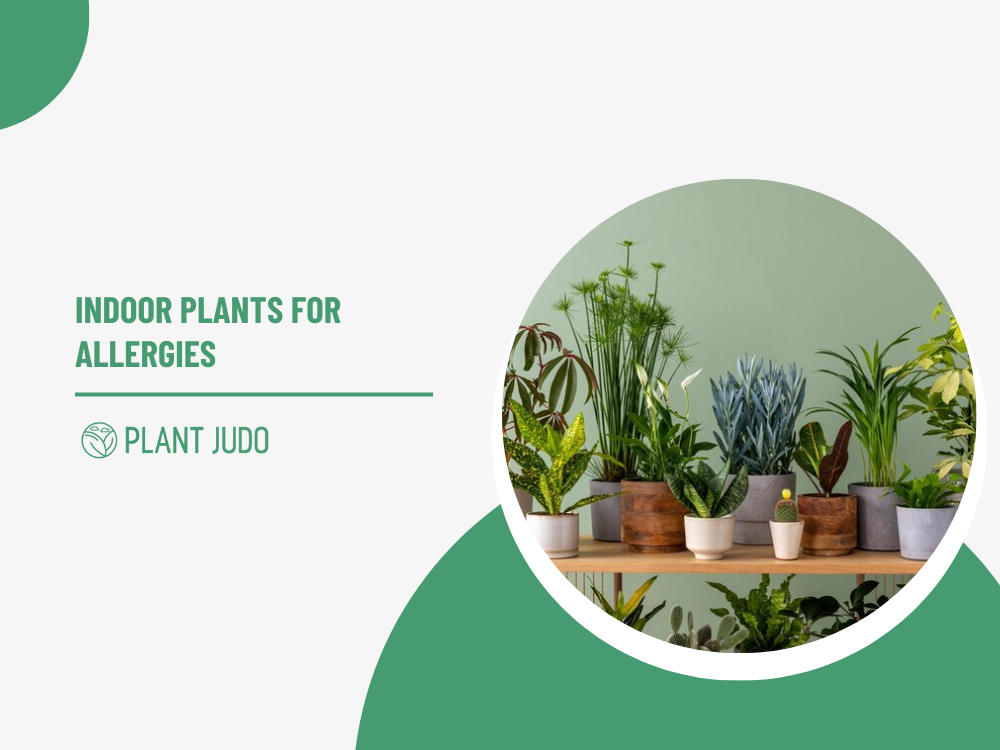As the weather starts to change, many of us start thinking about things we can do to keep our allergies under control.
One solution is to add some indoor plants to your dwelling. Indoor plants are a great way to help filter air quality and provide humidity, which can be helpful for those with allergies.
The 8 Best Indoor Plants for Allergies
1. Peace Lily
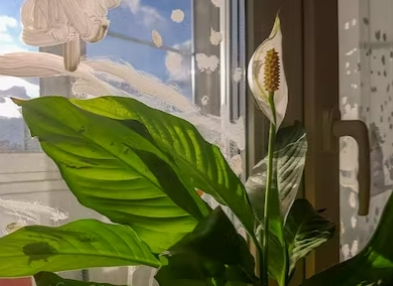
The peace lily is a popular indoor plant loved for its attractive appearance. It grows well in most climates, including very humid ones.
The plant can be an alternative to the common plants used for allergies. It is effective against pollen and dust mite allergies. The plant also has antioxidant properties that help prevent free radical damage to cells and organs of the body.
2. Spider Plant
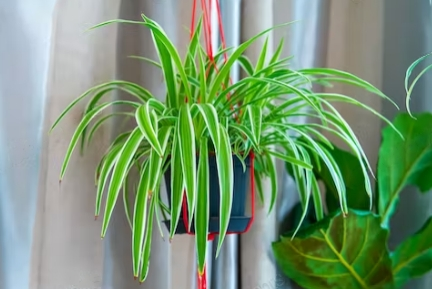
The spider plant is a great indoor plant that has several benefits. It can be grown in most indoor environments, it’s easy to care for, and it won’t be affected by the weather.
It’s also an excellent choice for people with allergies or asthma. The spider plant is very similar to other plants that help relieve allergies. Still, it has one significant advantage- the spider plant does not produce any pollen, which makes it safer for people with allergies.
3. English Ivy
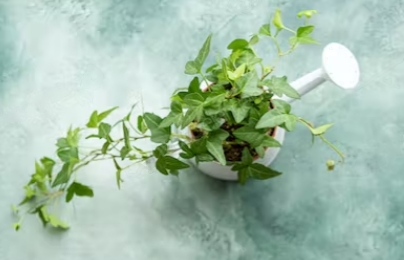
The English ivy is a plant that grows in temperate regions throughout Europe and North America. English ivy is one of the best indoor plants to use as a remedy for allergies and is known to reduce pollen and dust mite allergens.
It can also be used as a home remedy for skin problems like psoriasis, eczema and acne, which require certain herbs for treatment.
4. Snake Plant
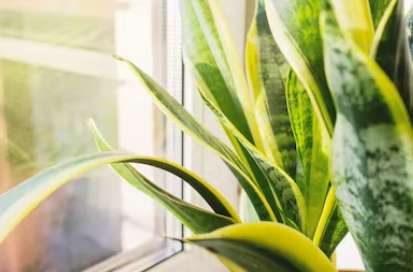
Snake plants are one of the best indoor plants for allergies. They have a low water requirement and produce minimal pollen, making them ideal for apartments and other tight spaces.
Snake plants are easy to grow and care for, and they have many benefits that make them a popular choice among allergy sufferers. These include:
- They can help to reduce pollen levels in the air, which can be helpful if you suffer from allergies or asthma.
- They have strong roots that can grow in difficult soil conditions, which makes them perfect for indoor pots or containers.
- They’re drought-tolerant and don’t require much attention once established. This makes them a good choice if you’re busy or want a plant that won’t take up too much space.
5. Bamboo Palm
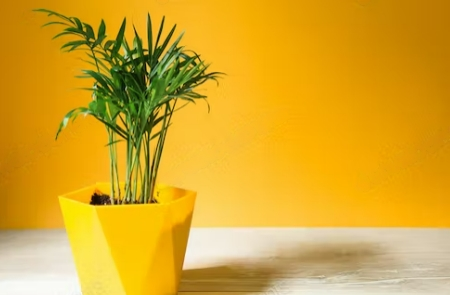
Bamboo palm is a type of indoor plant that grows in a pot. It has a long history of being used as an alternative to more traditional options.
One significant benefit of the bamboo palm is its ability to relieve allergy symptoms, especially for people living in areas with high pollen counts. It can be grown anywhere that provides enough space, including balconies, terraces, or even your office.
This plant needs little maintenance and does not need much space for growing – it can grow up to 6 meters tall, and the leaves are about 3 centimetres wide.
6. Golden Pothos
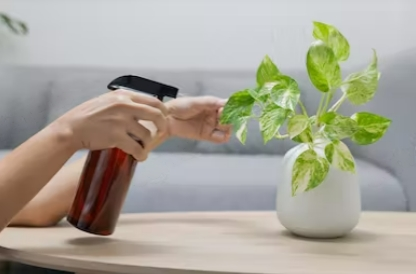
Regarding allergies, the Golden Pothos is one of the best indoor plants for allergy sufferers. It is excellent for filtering allergens out of the air and won’t die when exposed to extreme temperatures.
Golden Pothos is a tropical plant used for centuries in the East to strengthen the immune system.
It can be used as a decoration, planted on the windowsill, or even as a source of shade and coolness during the hot summer.
7. Aloe Vera Plant

The Aloe vera plant is one of the best plants for allergies. It has been used as a remedy for allergies since ancient times. It is also effective in relieving chronic pain and muscle cramps.
We can use the Aloe vera plant for many different reasons thanks to a variety of natural benefits, such as:
- It’s an excellent source of vitamins A and C.
- It helps digestion.
- It’s a great anti-inflammatory.
- And it fights against infections.
8. Boston Fern
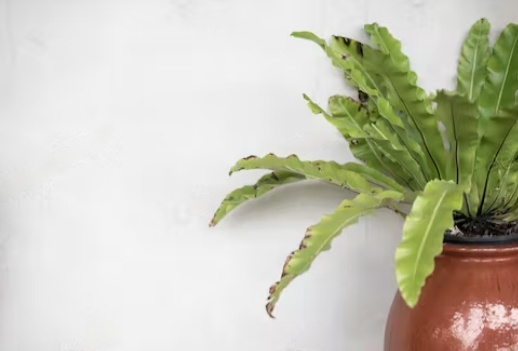
Boston ferns are another excellent option for anyone suffering from allergies. They are low-maintenance, easy to care for and provide many benefits.
First, Boston ferns are dense and low-growing, making them less likely to cause issues with air circulation.
Additionally, their leaves and fronds are very soft and will not cause irritation or inflammation in people with allergies. They also produce lots of oxygen, which can help people with allergies breathe a bit easier.
Finally, Boston ferns have a powerful scent that is typically not offensive to people with allergies.
Conclusion
Indoor plants are a great way to reduce allergies in your home. And just so you don’t forget the many benefits covered, here’s a brief recap:
- Some indoor plants are perfect for people with allergies because they don’t produce pollen. Others provide relief from coughing and snoring.
- They can be used as an air purifier to remove harmful air pollutants and can help to create a more comfortable environment.
- The plants also produce oxygen, which can help to reduce symptoms such as asthma.
Whatever the plant, it’s essential to choose one that’s the right size and shape for your space since not all plants will look good in every setting. Luckily, there is no shortage of options to choose from.
FAQs
Are houseplants effective at reducing allergies?
Indoor pollutants such as pollen can cause sneezing and watery eyes in people who suffer from allergies. Certain houseplants can help you solve this problem by collecting pollen and pollutants in their leaves, helping improve indoor air quality.
Do you think it is a good idea to keep live plants in your bedroom?
By absorbing harmful gases through their pores, plants filter and clean the indoor air you breathe. Adding bedroom plants to any room adds a nice touch of decor and an incredible energy boost. They are also beneficial to your health.
Dust mites are instantly killed by what?
Dust mites are killed by sprinkling diatomaceous earth on their living surfaces, which are made from silica rock.

